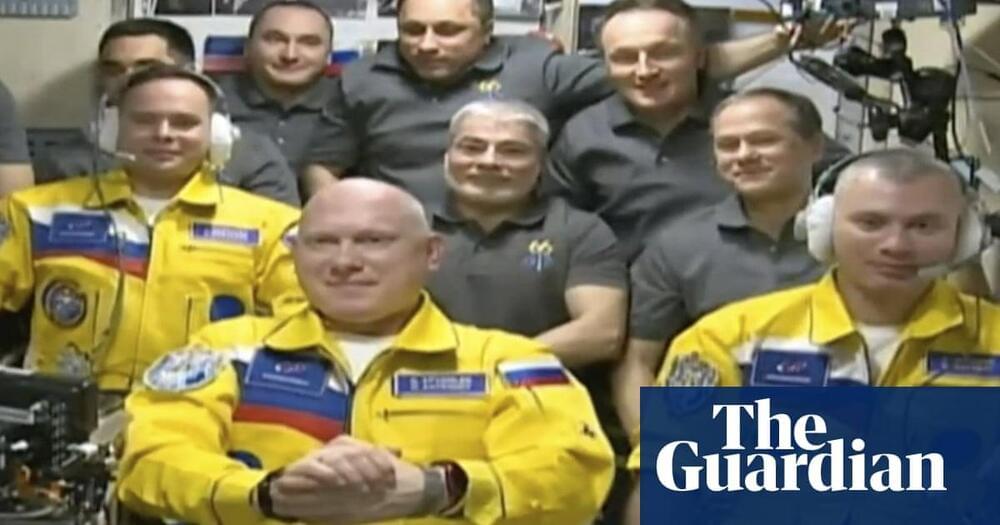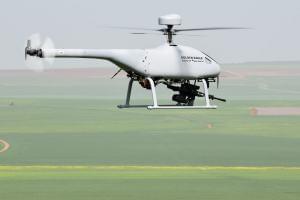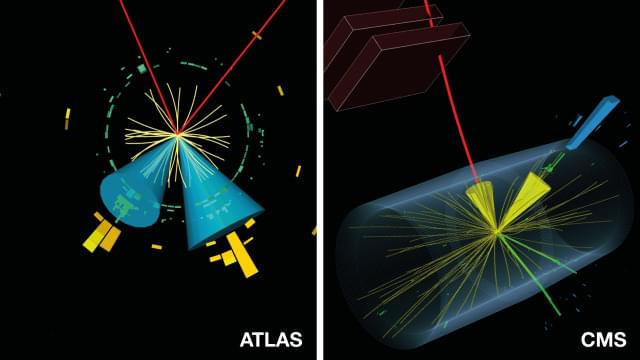Trio appeared to get changed shortly before arrival at space station and one said every crew could choose their own suit.



A new theoretical study has revealed how sound waves transfer small amounts of mass as they travel. Angelo Esposito, Rafael Krichevsky and Alberto Nicolis at Columbia University in the US have calculated that the transfer occurs even when both quantum and relativistic effects are ignored. Their result implies that current interpretations of the properties of sound waves may need to be rethought.
Physicists still puzzled about how effect can occur in solids.

Steadicopter, a leader in the Rotary Unmanned Aerial Systems (RUAS) industry, and Smart Shooter, a world-class designer, developer, and manufacturer of innovative fire control systems that significantly increase the accuracy and lethality of small arms, have unveiled the Golden Eagle — the first-ever unmanned helicopter with precise hit capabilities. The two companies will present the solution at the ISDEF exhibition in Tel Aviv.
Based on the combat-proven Black Eagle 50E platform, the Golden Eagle incorporates AI-based technology and Smart Shooter’s SMASH Dragon system. The AI-based technology enables superior situational awareness and autonomous multi-target classification and tracking. The SMASH Dragon, a remotely-operated robotic weaponry payload, locks on the target, tracks it and ensures precise target hit. SMASH Dragon integrates a unique stabilization concept with proprietary target acquisition, tracking algorithms and sophisticated computer vision capabilities that allow accurate hitting of static and moving targets while mounted onto the Golden Eagle.
“Using artificial intelligence, the new system provides a field combat solution for the modern battlefield. Forces on the ground can now send a helicopter for autonomous intelligence gathering into the relevant area and, having identified and classified the targets, send in another helicopter with precise attack capabilities.”
Dr. Abraham Mazor, VP Marketing & Business Development at Smart Shooter: “Using AI, computer vision and advanced algorithms, Smart Shooter’s SMASH technology enhances every mission effectiveness through the ability to accurately engage and hit ground, aerial, and naval, either static or moving targets during both day and night operations. Our SMASH Dragon lightweight robotic weaponry payload can be deployed on different unmanned aerial platforms, and we are honored to collaborate with Steadicopter and jointly offer the Golden Eagle RUAS.”
With both homelessness rates and the cost of housing continuing to climb in the U.S., one startup described as the “IKEA of houses” is determined to make beautifully-designed, energy efficient homes more affordable for everyone.
The founders of NODE believe that access to affordable housing should be a fundamental right. They’re working toward a sustainable solution to the current housing crisis, and it’s one that goes above and beyond the status quo.
What if you could build a carbon negative home for a fraction of the cost of a traditional home? What if you could do so in just two weeks? These ambitious objectives are exactly what NODE has set out to accomplish.

As the world struggles to improve the efficiency of cars and other vehicles in order to curb greenhouse gas emissions and improve the range of electric vehicles, the search is on for ever-lighter materials that are strong enough to be used in the bodies of cars.
Lightweight materials made from carbon fiber, similar to the material used for some tennis rackets and bicycles, combine exceptional strength with low weight, but these have been more expensive to produce than comparable structural elements made of steel or aluminum. Now, researchers at MIT and elsewhere have come up with a way of making these lightweight fibers out of an ultracheap feedstock: the heavy, gloppy waste material left over from the refining of petroleum, material that refineries today supply for low-value applications such as asphalt, or eventually treat as waste.
Not only is the new carbon fiber cheap to make, but it offers advantages over the traditional carbon fiber materials because it can have compressional strength, meaning it could be used for load-bearing applications. The new process is described in the journal Science Advances, in a paper by graduate student Asmita Jana, research scientist Nicola Ferralis, professor Jeffrey Grossman, and five others at MIT, Western Research Institute in Wyoming, and Oak Ridge National Laboratory in Tennessee.
Rather than fret about how many jobs future technologies will destroy, we should focus on how to shape them so that they complement the workforce of tomorrow.
The action is scheduled to start at 5 p.m. EDT (2100 GMT).
CAPE CANAVERAL, Florida — The first mission in NASA’s Artemis moon program is set to roll out to the launch pad today (March 17).
More than 50 years after NASA landed the first humans on the moon with Apollo 11, the agency is gearing up to launch its next human lunar missions as part of the Artemis program. And the program’s first mission, Artemis 1, will take a big step toward launch today, when the mission’s rocket and spacecraft will roll out to the launch pad.

Since the discovery of the Higgs boson a decade ago, the ATLAS and CMS collaborations at the Large Hadron Collider (LHC) have been hard at work trying to unlock the secrets of this special particle. In particular, they have been investigating in detail how the Higgs boson interacts with fundamental particles such as those that make up matter, that is, quarks and leptons. In the Standard Model of particle physics, these matter particles fall into three categories, or “generations”, of increasing mass, and the Higgs boson interacts with them with a strength that is proportional to their mass. Any deviation from this behaviour would provide a clear indication of new phenomena.
ATLAS and CMS have previously observed the interactions of the Higgs boson with the heaviest quarks and leptons, i.e. those of the third generation, which agree with the predictions from the Standard Model within the current measurement precision. They have also obtained the first indications that the Higgs boson interacts with a muon, a lepton of the second generation. However, they have yet to observe it interacting with second-generation quarks. In two recent publications, ATLAS and CMS report analyses that place tight limits on the strength of the Higgs boson’s interaction with a charm quark, a second-generation quark.
ATLAS and CMS study the Higgs boson’s interactions by looking at how it transforms, or “decays”, into lighter particles or how it is produced together with other particles. In their latest studies, using data from the second run of the LHC, the two teams searched for the decay of the Higgs boson into a charm quark and its antimatter counterpart, the charm antiquark.

As more and more AI agents are used in practice, it is time to think about how to make these agents fully autonomous so that they can learn by themselves continually in a self-motivated and self-initiated manner rather than being retrained offline periodically on the initiation of human engineers and accommodate or adapt to unexpected or novel circumstances. As the real-world is an open environment that is full of unknowns or novelties, detecting novelties, characterizing them, accommodating or adapting to them, and gathering ground-truth training data and incrementally learning the unknowns/novelties are critical to making the AI agent more and more knowledgeable and powerful over time.

“The investigation into the recent cyber event on the KA-SAT European network continues in partnership with law enforcement, government partners and Viasat’s third-party cybersecurity firm,” Viasat said in a statement March 11. “We currently believe this was a deliberate, isolated and external cyber event.”